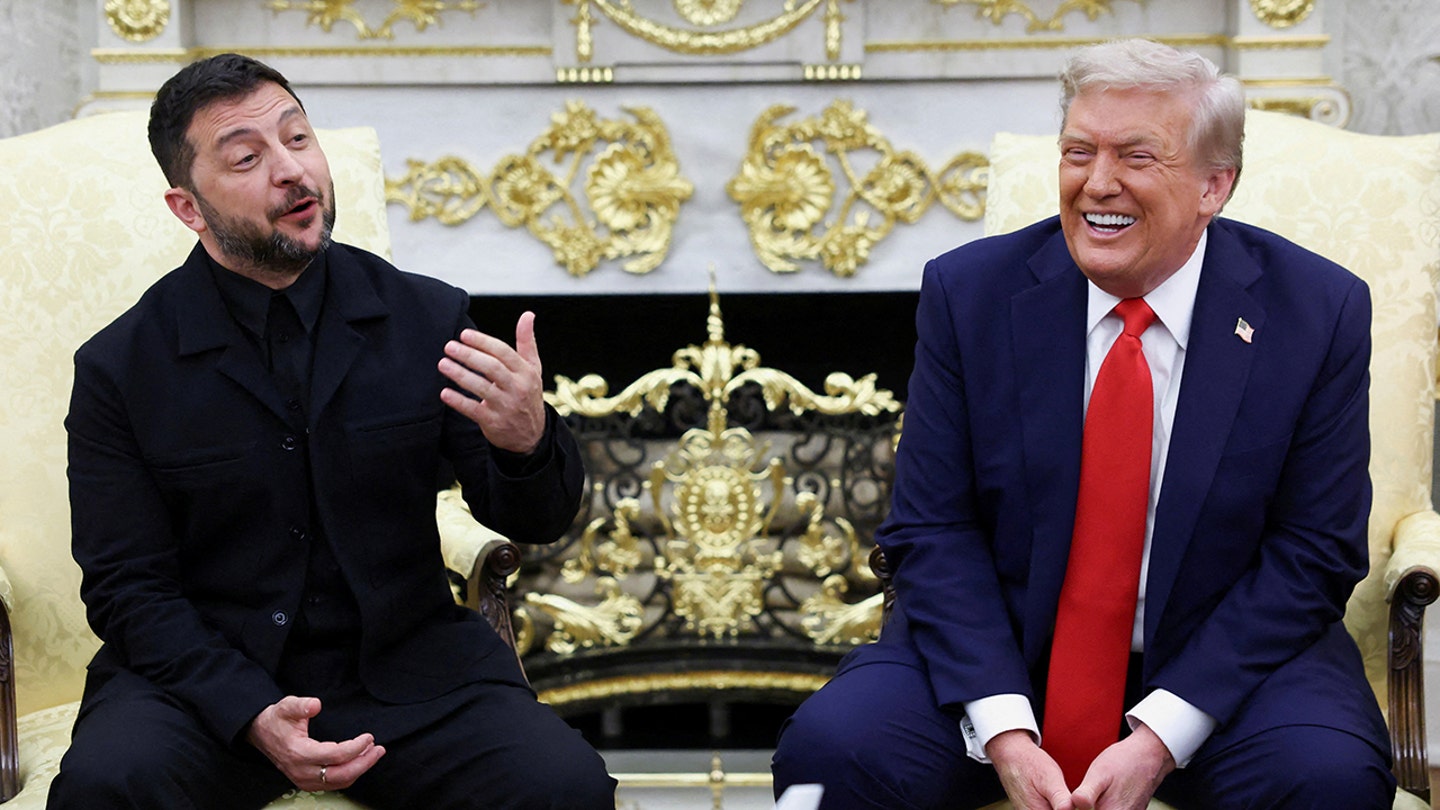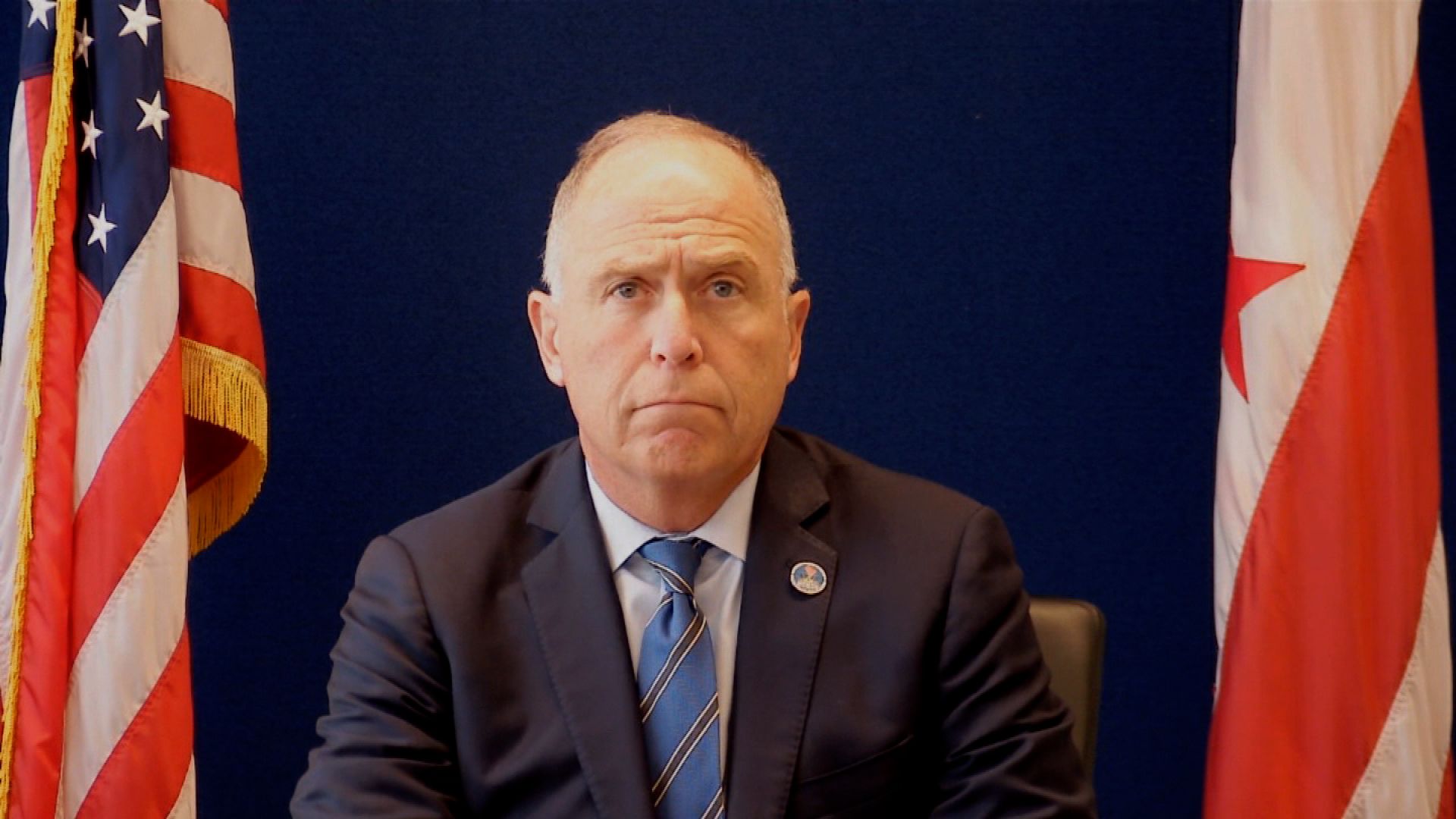
Bondi, Patel bring in Missouri AG to serve as FBI co-deputy director with Dan Bongino
Entities mentioned:
- Pam Bondi: Power, Control, Influence
- Kash Patel: Power, Loyalty, Control
- Andrew Bailey: Ambition, Loyalty, Duty
- Dan Bongino: Self-preservation, Pride, Influence
- Donald Trump: Power, Control, Legacy
- Todd Blanche: Loyalty, Professional pride, Influence
- FBI: Control, Security, Power
Article Assessment:
Credibility Score: 65/100
Bias Rating: 70/100 (Lean Right)
Sentiment Score: 55/100
Authoritarianism Risk: 65/100 (Authoritarian Tendencies)
Bias Analysis:
The article leans right due to its heavy reliance on Fox News as a source and its focus on Trump-aligned figures. The framing of the story and the language used suggest a favorable view of the changes in FBI leadership.
Key metric: Government Integrity and Accountability
As a social scientist, I analyze that this article reveals significant changes in the leadership structure of the FBI, a key institution in U.S. law enforcement. The appointment of a co-deputy director, especially one with strong political ties, suggests a potential shift in the FBI's operational dynamics and its relationship with the executive branch. This unusual move may impact the FBI's independence and could be seen as an attempt to exert more political control over the agency. The involvement of figures like Bondi and Patel, known for their loyalty to Trump, along with Bailey's explicit gratitude to Trump, indicates a possible politicization of the FBI's upper echelons. This development could have far-reaching implications for the integrity of federal law enforcement and the separation of powers, potentially eroding public trust in these institutions.

5 key moments inside Trump’s ‘big day’ with Zelenskyy, European leaders
Entities mentioned:
- Donald Trump: Power, Influence, Legacy
- Volodymyr Zelenskyy: Determination, Unity, Self-preservation
- Vladimir Putin: Power, Control, Influence
- JD Vance: Duty, Loyalty, Professional pride
- Ursula von der Leyen: Unity, Security, Peace
- Friedrich Merz: Unity, Security, Peace
- Emmanuel Macron: Unity, Security, Obligation
Article Assessment:
Credibility Score: 70/100
Bias Rating: 65/100 (Lean Right)
Sentiment Score: 65/100
Authoritarianism Risk: 35/100 (Generally Democratic)
Bias Analysis:
The article leans slightly right, focusing heavily on Trump's actions and portraying them in a generally positive light. While it includes multiple perspectives, the framing tends to emphasize Trump's leadership and diplomatic efforts.
Key metric: International Relations and Diplomacy
As a social scientist, I analyze that this article highlights a significant shift in diplomatic approach towards the Russia-Ukraine conflict. Trump's meetings with European leaders and Zelenskyy demonstrate an attempt to broker peace without a ceasefire, which is unconventional. The united European front and Trump's emphasis on Europe taking more responsibility for Ukraine's security indicate a potential realignment of international roles in the conflict. The article suggests a move towards more direct negotiations between conflicting parties, with the U.S. playing a facilitating role. This approach could significantly impact the trajectory of the conflict and reshape international diplomatic norms in conflict resolution.

Five GOP-led states to send hundreds of National Guard troops to DC as White House escalates police takeover
Entities mentioned:
- Donald Trump: Power, Control, Security
- Patrick Morrisey: Duty, Loyalty, Security
- Henry McMaster: Loyalty, Duty, Security
- Mike DeWine: Duty, Security, Obligation
- Muriel Bowser: Self-preservation, Justice, Freedom
- Sean Curran: Duty, Security, Professional pride
- Robert White: Moral outrage, Justice, Freedom
- Alan Dent: Moral outrage, Justice, Freedom
- Pam Bondi: Power, Control, Loyalty
- Terry Cole: Duty, Power, Control
- Pamela Smith: Professional pride, Duty, Security
Article Assessment:
Credibility Score: 75/100
Bias Rating: 45/100 (Center)
Sentiment Score: 35/100
Authoritarianism Risk: 65/100 (Authoritarian Tendencies)
Bias Analysis:
The article presents multiple viewpoints, including those of the federal government, state governors, and local officials. While it includes criticism of the federal actions, it also provides the administration's justifications, maintaining a relatively balanced perspective.
Key metric: Political Stability Index
As a social scientist, I analyze that this article highlights a significant escalation in federal intervention in local law enforcement, particularly in Washington, DC. The deployment of National Guard troops from multiple states, coupled with the attempted federal takeover of the DC police force, suggests a dramatic shift in the balance of power between federal and local authorities. This move raises concerns about the erosion of local autonomy and the potential for increased authoritarianism. The justification of addressing crime rates, despite evidence of lower overall crime numbers, indicates a possible disconnect between the stated reasons and actual motivations for these actions. This situation could lead to increased tensions between federal and local governments, potentially impacting the overall political stability of the nation. The resistance from local officials and citizens, as well as legal challenges, demonstrates the complex interplay of federal power, states' rights, and local governance in the American system.

Senate signals readiness to hit Russia with hard sanctions if peace deal fails
Entities mentioned:
- President Donald Trump: Power, Influence, Legacy
- Ukrainian President Volodymyr Zelenskyy: Self-preservation, Duty, Unity
- Russian President Vladimir Putin: Power, Control, Influence
- Senate Republicans: Loyalty, Determination, Security
- Senate Democrats: Moral outrage, Justice, Wariness
- Congress: Control, Influence, Duty
Article Assessment:
Credibility Score: 70/100
Bias Rating: 55/100 (Center)
Sentiment Score: 45/100
Authoritarianism Risk: 35/100 (Generally Democratic)
Bias Analysis:
The article presents views from both Republican and Democratic senators, providing a relatively balanced perspective. However, there's a slight emphasis on Republican viewpoints, with more detailed quotes and positive framing of Trump's actions.
Key metric: International Relations and Diplomacy
As a social scientist, I analyze that this article highlights the complex interplay between domestic politics and international diplomacy in the context of the Russia-Ukraine conflict. The Senate's readiness to impose sanctions on Russia reflects a bipartisan consensus on the need for a strong U.S. response, should diplomatic efforts fail. This stance potentially strengthens the U.S. negotiating position but also risks escalating tensions. The divergent views between Republicans and Democrats on Trump's approach underscore the polarized nature of U.S. politics, even in foreign policy matters. This internal division could potentially weaken the U.S.'s ability to present a unified front in international negotiations. The article also reveals the delicate balance between pursuing diplomatic solutions and maintaining a credible threat of economic penalties, showcasing the multifaceted nature of modern international relations.

Trump calls White House talks 'very good, early step' toward Russia-Ukraine peace: Here's what's next
Entities mentioned:
- Donald Trump: Influence, Legacy, Recognition
- Volodymyr Zelenskyy: Self-preservation, Unity, Security
- Vladimir Putin: Power, Control, Influence
- JD Vance: Duty, Professional pride
- Marco Rubio: Duty, Influence
- Steve Witkoff: Duty, Professional pride
- Friedrich Merz: Righteousness, Influence
Article Assessment:
Credibility Score: 65/100
Bias Rating: 65/100 (Lean Right)
Sentiment Score: 60/100
Authoritarianism Risk: 40/100 (Generally Democratic)
Bias Analysis:
The article leans right, focusing heavily on Trump's role and quoting him extensively. While it includes other perspectives, the framing tends to portray Trump's efforts in a positive light.
Key metric: International Conflict Resolution
As a social scientist, I analyze that this article portrays a significant shift in the dynamics of the Russia-Ukraine conflict, with Trump positioning himself as a key mediator. The potential for direct talks between Putin and Zelenskyy, facilitated by Trump, represents a major diplomatic development. However, the article also highlights the complexities involved, including the sensitive issue of territorial concessions and the divergent security interests of Ukraine and Russia. The emphasis on European nations providing security guarantees, with U.S. support primarily through arms sales, indicates a potential realignment of international involvement in the conflict. This approach could have far-reaching implications for U.S. foreign policy and global power dynamics.

Trump admin agrees to allow DC police chief to remain in charge after court challenge
Entities mentioned:
- Attorney General Pam Bondi: Control, Power, Duty
- Chief Pamela Smith: Duty, Professional pride, Security
- DEA Administrator Terrance Cole: Control, Duty, Power
- Judge Ana Reyes: Justice, Duty, Obligation
- Mayor Muriel Bowser: Control, Duty, Self-preservation
- DC Attorney General Brian Schwalb: Justice, Duty, Self-preservation
- President Donald Trump: Control, Power, Influence
Article Assessment:
Credibility Score: 75/100
Bias Rating: 45/100 (Center)
Sentiment Score: 35/100
Authoritarianism Risk: 70/100 (Authoritarian Tendencies)
Bias Analysis:
The article presents multiple perspectives, including those of federal and local officials, which contributes to a relatively balanced view. However, there is slightly more emphasis on local officials' concerns and reactions, which may indicate a subtle lean towards the local government's position.
Key metric: Federal-Local Government Relations
As a social scientist, I analyze that this article highlights a significant conflict between federal and local government authority, specifically regarding control over law enforcement in Washington, DC. The Trump administration's attempt to federalize the DC police force and override local policies, particularly those related to immigration enforcement, represents a major shift in the balance of power between federal and municipal governments. This action challenges the concept of 'Home Rule' in DC and raises questions about the limits of presidential authority in local governance. The legal challenges and negotiations described in the article demonstrate the complex interplay between different levels of government and the role of the judiciary in mediating such conflicts. This situation could have far-reaching implications for federal-local relations, particularly in areas with significant federal presence or in cities with policies that conflict with federal priorities.

National guard begins deploying on DC streets after Trump police takeover
Entities mentioned:
- Donald Trump: Power, Control, Influence
- National Guard: Duty, Security, Obligation
- Washington DC Police: Control, Security, Professional pride
Article Assessment:
Credibility Score: 65/100
Bias Rating: 35/100 (Lean Left)
Sentiment Score: 25/100
Authoritarianism Risk: 75/100 (Authoritarian Tendencies)
Bias Analysis:
The article leans left in its framing, emphasizing concerns over Trump's actions. While factual, the choice of language like 'takeover' suggests a critical stance towards the administration's moves.
Key metric: Trust in Democratic Institutions
As a social scientist, I analyze that this deployment of the National Guard and Trump's takeover of DC police represents a significant erosion of local autonomy and democratic norms. The president's direct control over law enforcement in the nation's capital bypasses normal chains of command and civilian oversight. This action risks damaging public trust in democratic institutions by demonstrating an unprecedented consolidation of federal power over local affairs, potentially setting a concerning precedent for executive overreach.

Scientists rush to bolster climate finding Trump administration aims to undo
Entities mentioned:
- Trump administration: Control, Power, Influence
- Scientists: Professional pride, Duty, Determination
- Donald Trump: Power, Control, Influence
- National Guard: Duty, Obligation, Security
- Democrats: Justice, Righteousness, Moral outrage
Article Assessment:
Credibility Score: 65/100
Bias Rating: 30/100 (Lean Left)
Sentiment Score: 25/100
Authoritarianism Risk: 70/100 (Authoritarian Tendencies)
Bias Analysis:
The article leans left in its framing, focusing on actions by the Trump administration that are presented in a critical light. The language used and the selection of topics covered suggest a perspective more sympathetic to opposition to Trump's policies.
Key metric: Environmental Protection and Climate Change Policy
As a social scientist, I analyze that this article highlights a significant conflict between the scientific community and the Trump administration regarding climate change findings. The administration's efforts to undo or discredit scientific research on climate change could have far-reaching implications for environmental policy and global climate initiatives. The deployment of the National Guard in Washington DC and potential expansion to other cities suggests an escalation of federal power and control over local jurisdictions, which could impact democratic norms and civil liberties. The article also touches on various other issues such as healthcare funding, immigration policy, and electoral processes, indicating a broad range of policy areas under scrutiny or subject to change by the administration.

Today in FocusStephen Miller, Trump’s immigration mastermind – podcast
Entities mentioned:
- Stephen Miller: Influence, Control, Power
- Donald Trump: Power, Control, Legacy
- Beto O'Rourke's group: Influence, Justice, Unity
- Marco Rubio: Influence, Duty, Security
- Democratic cities: Self-preservation, Unity, Security
- Democratic socialists: Ambition, Justice, Influence
- Zohran Mamdani: Ambition, Justice, Recognition
- Ghislaine Maxwell: Self-preservation, Fear, Control
Article Assessment:
Credibility Score: 70/100
Bias Rating: 40/100 (Lean Left)
Sentiment Score: 35/100
Authoritarianism Risk: 55/100 (Mixed/Neutral)
Bias Analysis:
The article compilation leans slightly left, evidenced by the focus on Democratic perspectives and critical tone towards Trump administration policies. However, it does include diverse viewpoints and topics, maintaining a degree of balance.
Key metric: Political Polarization Index
As a social scientist, I analyze that this article compilation reflects increasing political tensions and polarization in the United States. The various topics covered, from immigration policies to international relations and domestic security concerns, highlight the complex challenges facing the nation. The restraining order against Beto O'Rourke's group and the preparation of Democratic cities for potential federal intervention indicate growing distrust between different levels of government and political factions. The mention of Democratic socialists' perceived winning streak suggests a potential shift in political ideologies. The focus on Trump's actions and statements, both domestically and internationally, continues to be a central theme in US politics, further dividing public opinion. This amalgamation of issues and conflicts is likely to exacerbate political polarization, making it increasingly difficult to find common ground on critical national issues.

Three GOP-led states to send hundreds of National Guard troops to DC as White House escalates police takeover
Entities mentioned:
- Donald Trump: Power, Control, Security
- Patrick Morrisey: Loyalty, Duty, Security
- Henry McMaster: Loyalty, Duty, Security
- Mike DeWine: Duty, Security, Obligation
- Muriel Bowser: Self-preservation, Justice, Freedom
- Sean Curran: Duty, Security, Professional pride
- Robert White: Moral outrage, Justice, Freedom
- Pam Bondi: Power, Control, Loyalty
- Terry Cole: Duty, Professional pride, Security
- Pamela Smith: Professional pride, Duty, Self-preservation
Article Assessment:
Credibility Score: 75/100
Bias Rating: 45/100 (Center)
Sentiment Score: 35/100
Authoritarianism Risk: 70/100 (Authoritarian Tendencies)
Bias Analysis:
The article presents multiple viewpoints, including those of the Trump administration and its critics. While it gives more space to concerns about federal overreach, it also includes the administration's justifications for its actions.
Key metric: Domestic Political Stability
As a social scientist, I analyze that this article highlights a significant escalation in federal intervention in local law enforcement, particularly in Washington, DC. The deployment of National Guard troops from multiple states to the nation's capital, at the request of the Trump administration, represents a marked shift in the balance of power between federal and local authorities. This move, coupled with the attempted federalization of DC's police force, raises concerns about the erosion of local autonomy and the potential for increased authoritarianism. The article suggests a growing tension between the Trump administration's stated goals of reducing crime and 'beautifying' the city, and the Democratic local government's resistance to what they perceive as federal overreach. This situation could have far-reaching implications for domestic political stability, potentially setting precedents for federal intervention in other cities and exacerbating existing political divisions.